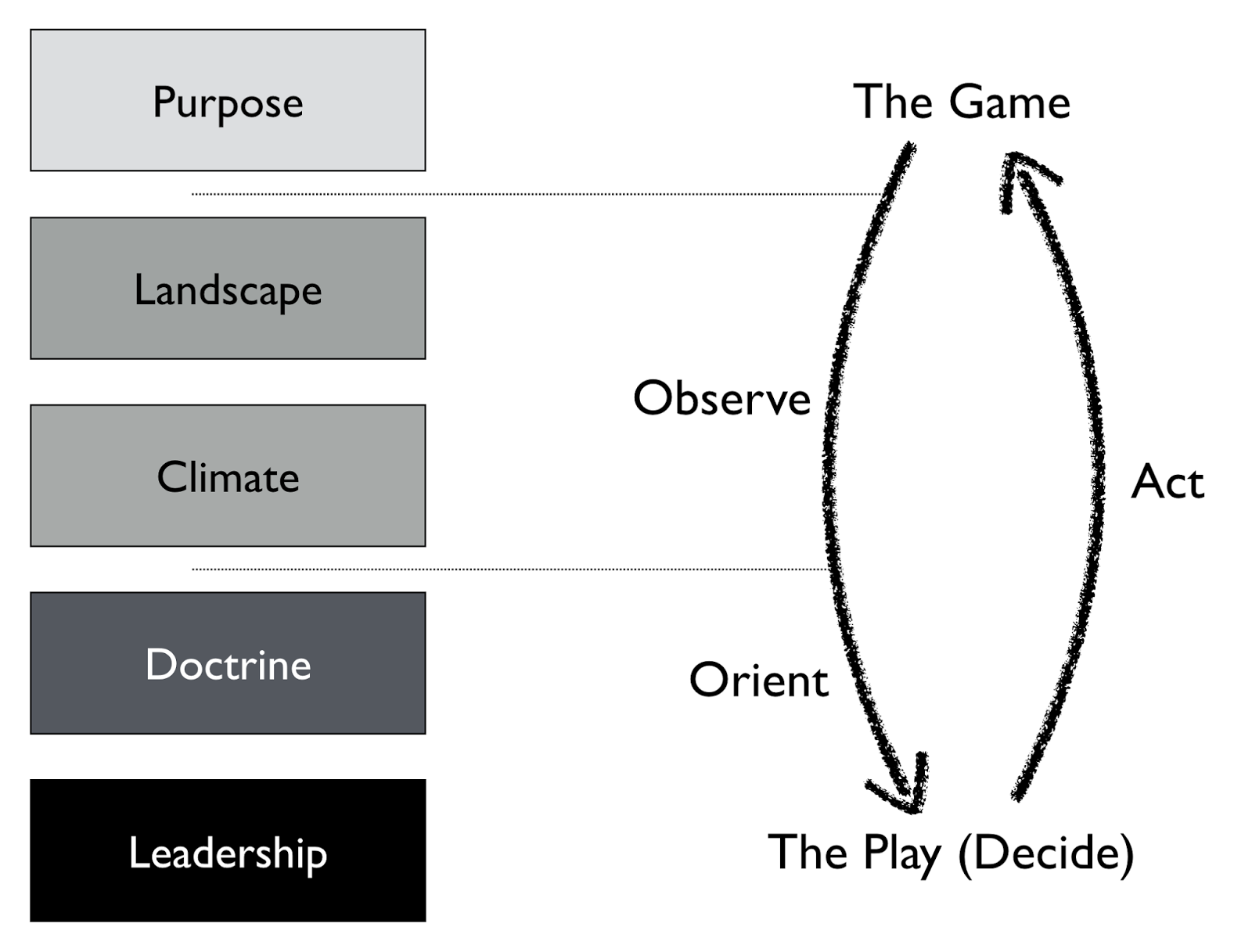Difference between revisions of "Purpose"
From WardleyPedia
m |
|||
| Line 1: | Line 1: | ||
A large inspiration for the Wardley Mapping method comes from Sun Tzu's ''The Art of War'', and from John Boyd's [[OODA Loop]]. The five factors of competition described there were [[Purpose]] - [[Landscape]] - [[Climate]] - [[Doctrine]] - [[Leadership]]. {{Book cite 1}} | A large inspiration for the Wardley Mapping method comes from Sun Tzu's ''The Art of War'', and from John Boyd's [[OODA Loop]]. The five factors of competition described there were [[Purpose]] - [[Landscape]] - [[Climate]] - [[Doctrine]] - [[Leadership]]. {{Book cite 1}} | ||
| − | + | [[File:Art of War with OODA.png|800px]] | |
Purpose tends to be a long-term stable feature of a business, but it does have the potential to change as a result of changes in strategy: | Purpose tends to be a long-term stable feature of a business, but it does have the potential to change as a result of changes in strategy: | ||
| − | + | Purpose is your moral imperative, it is the scope of what you are doing and why you are doing it. It is the reason why others follow you. . . . Whilst the art of strategy is deciding "why here over there" and this in turn requires you to understand the possible wheres (i.e. your landscape), the consequence of making a decision can alter your purpose.<ref>https://blog.gardeviance.org/2015/10/strategy-starts-with-where-not-why.html</ref> | |
| − | Whilst the art of strategy is deciding "why here over there" and this in turn requires you to understand the possible wheres (i.e. your landscape), the consequence of making a decision can alter your purpose.<ref>https://blog.gardeviance.org/2015/10/strategy-starts-with-where-not-why.html</ref> | ||
Revision as of 21:15, 31 May 2018
A large inspiration for the Wardley Mapping method comes from Sun Tzu's The Art of War, and from John Boyd's OODA Loop. The five factors of competition described there were Purpose - Landscape - Climate - Doctrine - Leadership. [1]
Purpose tends to be a long-term stable feature of a business, but it does have the potential to change as a result of changes in strategy:
Purpose is your moral imperative, it is the scope of what you are doing and why you are doing it. It is the reason why others follow you. . . . Whilst the art of strategy is deciding "why here over there" and this in turn requires you to understand the possible wheres (i.e. your landscape), the consequence of making a decision can alter your purpose.[2]